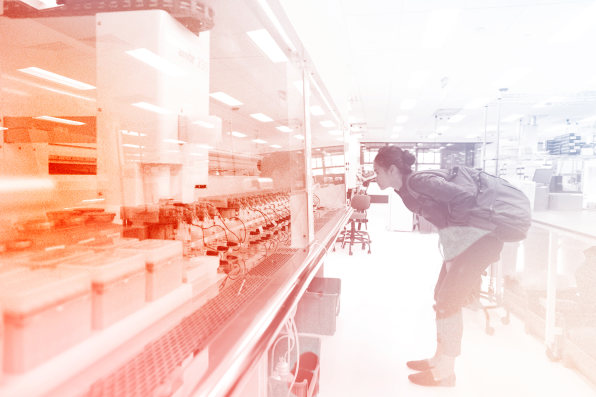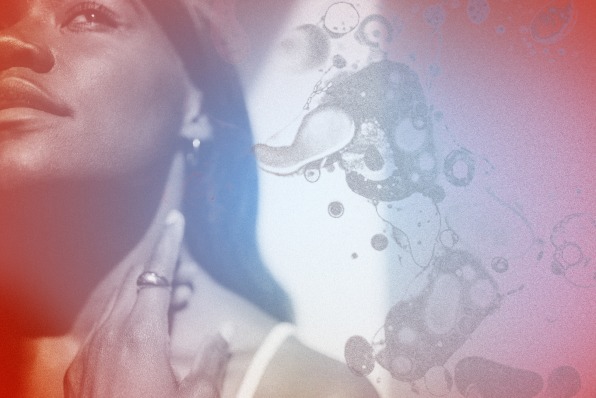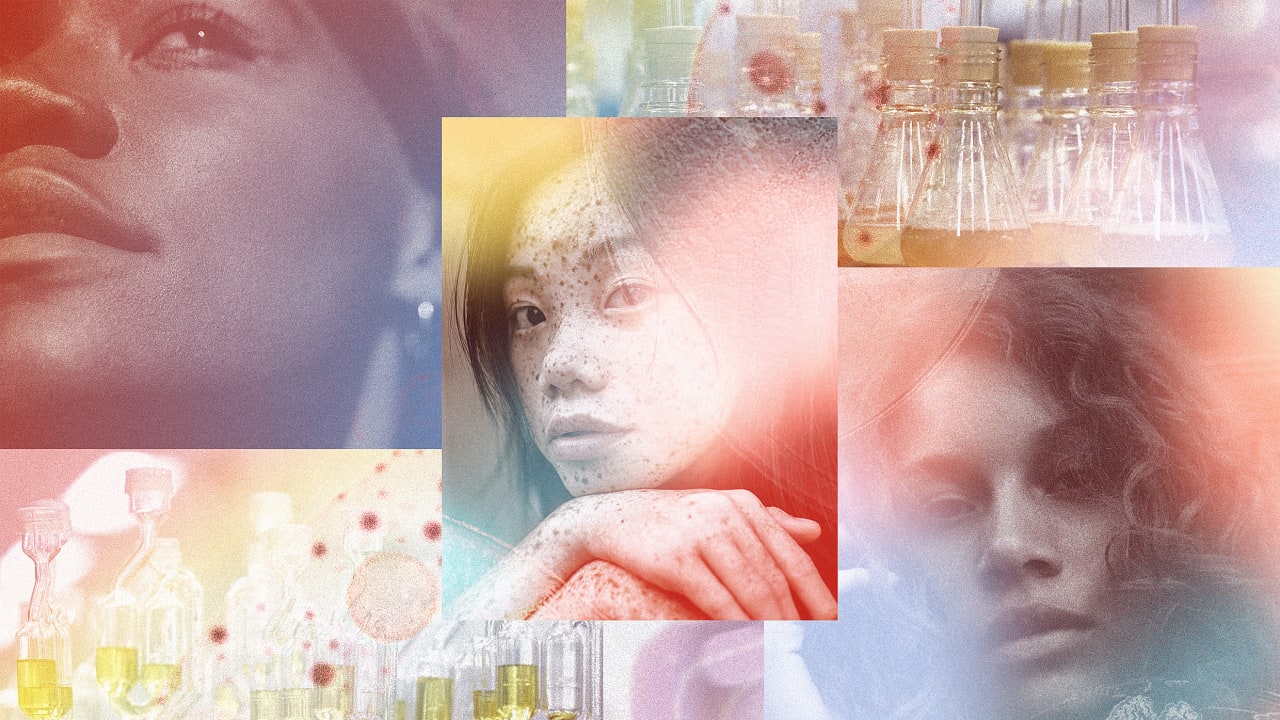Making beauty products can be an ugly business; many ingredients must be extracted from the earth or harvested from animals.
This week, a high-tech beauty startup Arcaea launched with the hope of creating beauty products more sustainably. The company already has $78 million in funding from big players in the beauty space including Chanel, perfume company Givaudan, and Birchbox owner Viking Global Investors. It spins out of Boston-based biotech firm Ginkgo Bioworks which specializes in developing cells that accomplish a specific purpose.
Arcaea’s goal is to create ingredients that can achieve new functionality, such as shampoo that alters the proteins in your hair to memorize your hair style and sunscreen that makes your skin more resistant to the sun’s rays.

Jasmina Aganovic, Arcaea’s founder and CEO, has spent her career thinking about how biotechnology can change the beauty industry. In 2015, she founded Mother Dirt, a startup that uses live bacteria to cleanse the skin without harming the good bacteria in our bodies. In 2019, she left the company to become the entrepreneur-in-residence at Ginkgo Bioworks, where she incubated Arcaea.
Aganovic was drawn to Ginkgo because of its powerful Foundry platform that basically enables scientists to program cells the way we program computers. “The Foundry is a lab, but instead of lots of scientists using pipettes, Ginkgo marries biology with AI and robots,” she says. “This allows us to understand cells and program cells at scale.” For instance, Ginkgo famously sequenced the DNA of cells from flowers that had been extinct for centuries to revive their fragrances, then produced these smells for a museum exhibit.
With Arcaea, Aganovic will use Ginkgo’s Foundry platform to cultivate cells that can be used in beauty products. For example, keratin is a protein currently used in many beauty products because it strengthens hair, nails, and skin. It’s currently derived from animals, whose hooves, hair, and horns are made up of the substance. Arcaea plans to cultivate keratin using Ginkgo’s technology, which wouldn’t require using animals. Once the keratin cells have been created, they could be mass produced in vats, then incorporated into beauty products. This also streamlines the supply chain, since you could manufacture the keratin close to where you make the product, cutting down on carbon emissions. “With biotech, you can solve the sourcing problem,” says Aganovic. “Consumers don’t want products that require harming animals.”

But Aganovic is even more excited about the possibilities of creating entirely new ingredients that aren’t found in nature. In the case of keratin, for instance, Ginkgo’s lab would allow the Arcaea team to study the protein in great detail, then reprogram it to achieve specific goals. It might be possible, for example, to design keratin that could alter the structure of hair, so it would curl or straighten, depending on what the user wanted. “Biology can do things that chemistry cannot,” says Aganovic. “Chemistry looks at your hair and coats it with chemicals to make it look and feel a certain way. Biology looks at things at the amino acid level and alters it.”
Aganovic says the company is a few years out from bringing new products to market. And while it’s currently investing heavily in developing these new technologies, eventually, Aganovic expects the price to be comparable to others on the market. Lab-grown keratin, for instance, could cost as same as keratin harvested from animals.

So far, Ginkgo’s technology has been applied to medicine for things like nucleic acid vaccines, which inject DNA code into the body to produce inert proteins. (The technology used in Pfizer and Moderna’s COVID-19 vaccines is similar.) Ginkgo also works with agriculture companies to create strains of plants that are more resistant to pests and disease, and better able to acquire nutrients. This is the first time Ginkgo is partnering with a beauty company.
Arcaea will partner with beauty brands to create products for them, although Aganovic says she can’t yet disclose which ones. Still, the company’s investors provide some clues as to which brands might be on that list. Arcaea also expects to start producing its own line of products. “I’m excited about how we can develop tools centered around biology to solve some of the problems that I’ve seen in the beauty industry,” Aganovic says. “This technology can make the industry more sustainable and it might enable us to create products we’ve never been able to imagine before.”
https://www.fastcompany.com/90691319/the-makeup-of-the-future-will-be-grown-in-a-petri-dish
 fashion rec fashion wanted
fashion rec fashion wanted



